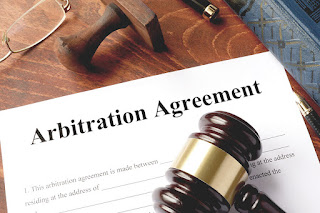Article V of the New York Convention could be interpreted as
stating that if an award has been annulled by the court of the seat of
arbitration, then the courts of other countries must not recognise or enforce
the award. This would then be in conflict with Article VII which states that
courts must apply domestic law which is more favourable to enforcement of
awards. The question is which one of these provisions is more desirable, and I
will argue that very different lines of thought concerning enforcement of
awards underlie them.
Arguments in favour of
enforcing an annulled award: Article VII:
1.
The
Convention:
One could argue that one argument
in favour of enforcing is that Article VII requires it; however we know that
the requirements of the New York Convention are problematic here, and I will be
considering more substantive arguments in favour.
2. Promotes
enforcement:
This results in more enforcement,
which is the aim of the New York Convention.
3.
Denationalised
view of awards:
The argument would be that the
law of the home state has no special claim to the award, and so the other
countries’ courts are free to enforce an award annulled in foreign courts. This
is true in legal theory, but the point is that the Convention has given the
home court this special claim, and the question is whether this is justified,
rather than whether it is possible.
Arguments against enforcing an annulled award: Article V:
1. The
Convention: See above
2.
Preserves
finality:
If other courts could enforce
awards annulled by the home court, then the parties could simply apply to
foreign courts for enforcement until one granted it. This would mean that no
annulment would ever be final, and would therefore undermine international
arbitration. This argument is not necessarily in favour of the home court’s
decision being final, but there needs to be some decision which is recognised
internationally as final.
3.
The
implied choice of the parties:
As above, their needs to be some
court decision which is regarded as final regarding the enforceability of the
arbitration award. One could argue that the court which has this decision
should be determined by the parties. One could argue that the parties have
impliedly done this when they chose to submit themselves to arbitration which
derives its legal force from the legal system of the country the arbitration
takes place in. This should, however, mean that if the parties explicitly
choose a different law to determine the final decision, then this should be
given effect to.
Conclusion:
At the moment, the New York
Convention has held that the court with the final say as to the enforceability
of an arbitration agreement is the court of the seat of arbitration. There
needs to be a court with a final say for international arbitration to work, and
it is arguable that this choice gives effect to the implied intentions of the
parties, which is a fundamental concern in arbitration law.
Law Tutors Online, UK Law Tutor, UK Law Notes, Manchester Law Tutor, Birmingham Law Tutor, Nottingham Law Tutor, Oxford Law Tutor, Cambridge Law Tutor, New York Law Tutor, Sydney Law Tutor, Singapore Law Tutor, Hong Kong Law Tutor, London Tutors, Top Tutors Online and London Law Tutor are trading names of London Law Tutor Ltd. which is a company registered in England and Wales. Company Registration Number: 08253481. VAT Registration Number: 160291824 Registered Data Controller: ZA236376 Registered office: Berkeley Square House, Berkeley Square, London, UK W1J 6BD. All Rights Reserved. Copyright © 2012-2024.


